In this article
Between the threat of ticks and fleas, dogs seem like natural traps for countless parasitic creepy pests. Fortunately, there’s one common household nuisance dogs are less likely to carry in than their human owners: bed bugs. Dogs are unlikely to have bed bugs due to the unique way the nasty pests like to travel and feed. In fact, our four-legged friends can even be a secret weapon against detecting infestations!
Although bed bugs rarely hang out on dogs, they can still take advantage of their presence in the house. We’ll explore why and when dogs can have bed bugs and their role in spreading these nuisances so you can keep your home pest-free.

Can Dogs Have Bed Bugs?
Dogs, like humans, don’t carry bed bugs, but the bugs can live with them. Unlike many common canine parasites, bed bugs don’t attach to hosts to feed on them continuously. Instead, they hide near their hosts, emerging at night to feed and retreating to their home after several minutes when they’re engorged. They’ll then stay in their hideaway for 3–7 days before feeding again.
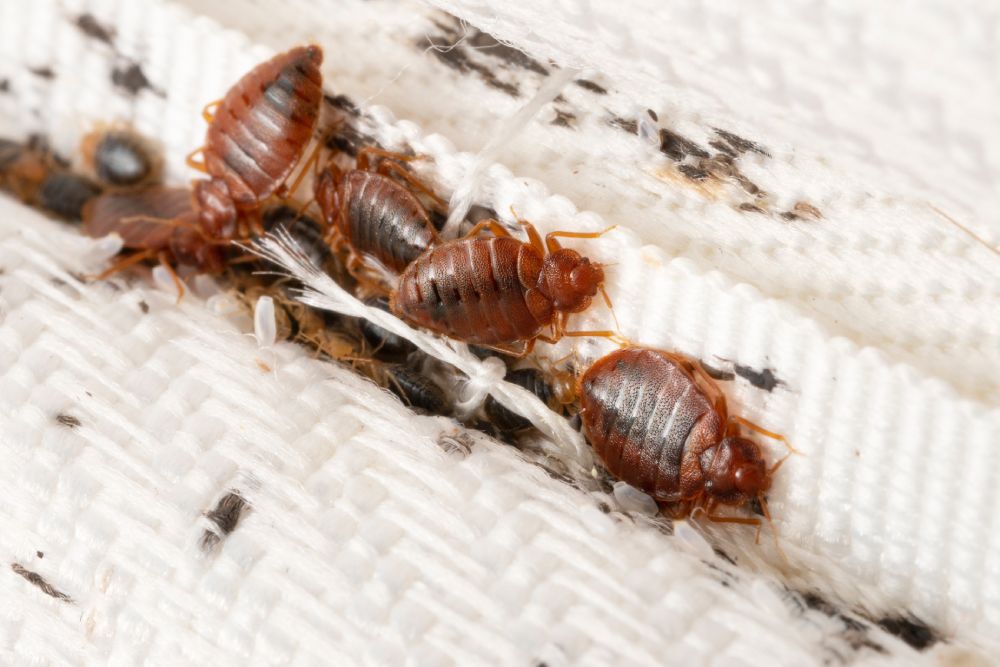
Do Dogs Attract Bed Bugs?
Humans and animals attract bed bugs through carbon dioxide, body heat, and chemical signals coming from our sweat, sebum, and skin. When given a choice between people or pets, bed bugs usually choose the human host because they’re the easiest target.
Bed bugs aren’t as nimble or proficient at burrowing as other parasites. While a human’s hairless body makes eating and moving around easy, a dog’s dense coat creates a more effective bed bug barrier to prevent feeding.
Since dogs are secondary bed bug hosts at best, you’ll often find them on your pet once there’s already an out-of-control infestation. But dogs can also carry them into the house on rare occasions. For instance, if you go on vacation, hotel bugs may hitch a ride in collars, dog beds, or toys. Once inside your home, it won’t be long before they journey to the bedroom.
Do Bed Bug Bites Hurt?
Bed bug bites aren’t painful or even noticeable as they’re happening. We don’t jolt awake when they munch on us at night, but the bite can leave itchy, red bumps behind. Your dog may only show signs a couple of days after getting bitten.

Signs of Bed Bug Bites on Dogs
Due to their thick hair hiding the skin, there are rarely apparent physical indications of a bed bug bite. The clearest sign will be excessive scratching around the irritated area. If you can see through their coat, you may notice visible signs, such as:
- Clusters or lines of itchy welts on the body
- Small blisters
- Skin thickening and hardening
Dogs are most vulnerable in areas where the hair is thinnest. You’ll typically find the tell-tale lesions around the groin, belly, and ears where bed bugs have the best access to the dog’s skin.
You can also check your dog’s items for further signs of bed bug activity. Rust-colored blood stains or small, dark fecal spots may appear on bedding. Bed bugs may also shed skin and lay ovular eggs in conspicuous places. Alongside these visible clues, bed bugs emit a sweet, musty odor of pheromones that smells almost like raspberries.
Can Bed Bugs Hurt My Dog?
Bed bugs aren’t known to transmit disease, and dogs usually experience only mild, temporary discomfort. They could have an allergic reaction if they suffer numerous bites or have heightened sensitivities. Dogs can experience hives, facial swelling, breathing difficulty, or, in rare cases, even more severe issues like anaphylaxis.
Although bed bug bites cause a few issues, the minor irritation may be enough to create a worsening skin problem. Eventually, aggressive ongoing scratching and licking can break the skin. The open wound can then take on germs, parasites, and soil from your dog’s paws, leaving them open to an infection.
Consult your vet if you notice your dog scratching constantly or find bites and damaged skin. They can run tests to confirm the problem and recommend assorted antihistamines, topical creams, or steroidal medications to relieve the irritation and promote healing.
If you need to speak with a vet but can't get to one, head over to PangoVet. It's our online service where you can talk to a vet online and get the advice you need for your dog — all at an affordable price!

How to Treat Your Dog’s Bed Bug Bites
To relieve bed bug bite irritation, clean the affected area with a mild dog shampoo and rinse thoroughly. Applying a cold compress for 10–15 minutes can help dull the itchiness.
You can also use a topical anti-itch cream, shampoo, or spray. Contact your vet for guidance if your dog shows persistent itchiness and agitation.
Our Favorite Products
Selecting the right shampoo and conditioner makes the world of a difference when grooming your pup. Our favorite products are the duo by Hepper. The Oatmeal Pet Shampoo is formulated with aloe and oatmeal to soothe skin and hydrate the coat. The Pet Conditioner works at eliminating tangles and taming frizz and static. Both products are pH-balanced and formulated with pet-friendly ingredients, free of harsh soaps, chemicals, and dyes. Give this duo a try to heal and nourish your dog's coat, and leave them with an irresistible just-left-the-spa cucumber and aloe scent.
| Image | Product | Details | |
|---|---|---|---|

|
Hepper Oatmeal Pet Shampoo |
|
Check Price |
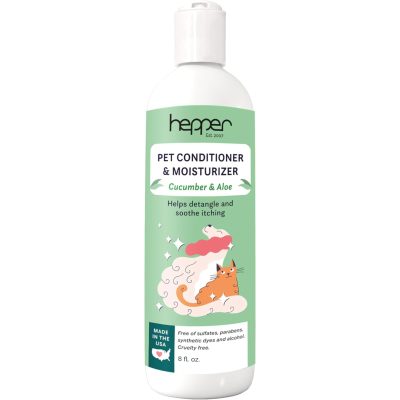
|
Hepper Pet Conditioner |
|
Check Price |
At Dogster, we’ve admired Hepper for many years and decided to take a controlling ownership interest so that we could benefit from the outstanding designs of this cool pet company!
How Can You Get Rid of Bed Bugs?
Bed bugs aren’t athletic, but they are sneaky. They’ll hide in convenient crevices around a room, retreating to furniture, curtain folds, picture frames, and any other minor gap to avoid detection. Infestations spread quickly, demanding urgent attention, patience, and integrated management strategies. Some essential steps to take when you notice that you or your dog has bed bug bites include:
- Washing and drying your dog’s bedding on high heat
- Vacuuming the floor thoroughly
- Treating or discarding furniture
- Steam cleaning carpeting, baseboards, and trim
- Filling cracks around walls and trim to eliminate hiding spots
- Removing clutter that may create hiding spots
Infestations that spread beyond your dog’s sleeping area may require efforts like mattress encasements and pesticides. At a certain point, professional intervention may be the most efficient and practical choice.
Experts can apply heat treatments, pesticide foggers, and desiccant powders to penetrate every point where bed bugs might hide, which can prevent recurring infestations.
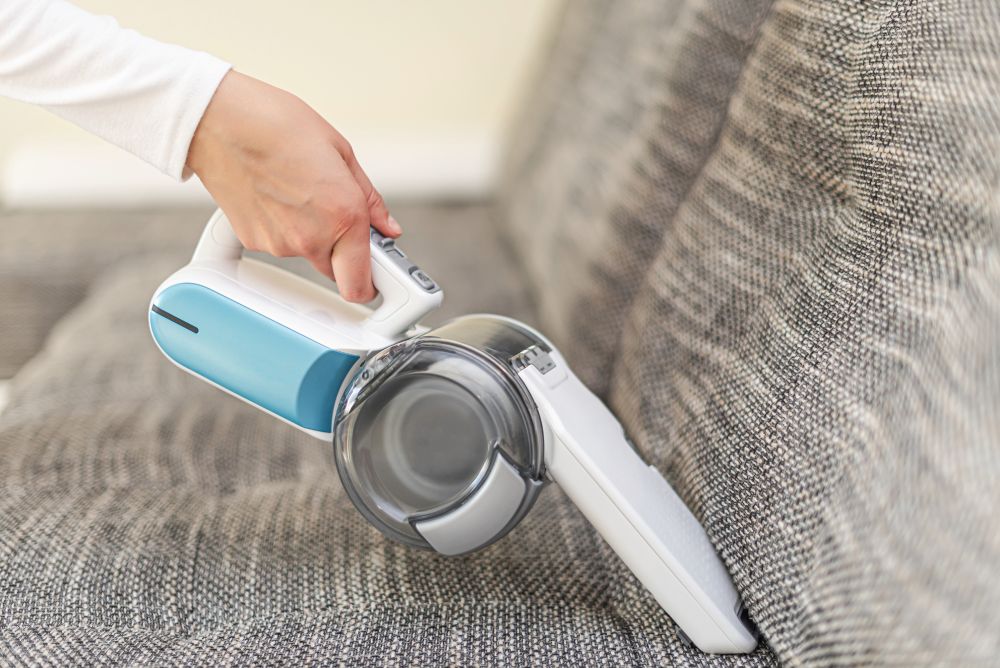

Frequently Asked Questions
How Do You Prevent Bed Bugs on Dogs?
Preventing bed bugs on your dog is similar to keeping them off yourself. When traveling, avoid setting your dog’s equipment in place until you can inspect the space for signs of activity. Check mattresses, headboards, sofas, and other nooks or crannies with a flashlight to ensure your belongings don’t pick up unwanted passengers.
By the same token, you should check secondhand items you might buy for your dog, like carriers, before bringing them into your house. And if bed bugs are a frequent threat, regular inspections around the home will help you root out any emergent infestations.
Do Flea and Tick Preventatives Kill Bed Bugs?
The thick, impenetrable coat isn’t the only line of defense your dog has against pests. If you stay on top of their preventative medicines to combat fleas and ticks, you’re also likely helping them avoid bed bug problems.
Several insecticidal compounds can increase bed bug mortality once they bite your dog. Afoxolaner (NexGard) has bed bug-killing qualities, likewise, Fluralaner (Bravecto) has potential against bed bugs as well.
Research specific to dogs is lacking, but typical topical and chewable antiparasitic treatments show promise as an essential part of bed bug prevention for pets.
Dogs and Bed Bug Detection
While dogs are another possible host for bed bugs, they are also becoming one of the top monitoring systems to prevent infestations. Bed bugs are excellent hiders, quick to reproduce, and able to survive for months without feeding, often making eradication an ongoing challenge. After an extensive extermination attempt, how do you know they’re 100% gone and not coming back?
Bug-detecting canines might be the answer. In one study, dogs trained to detect bed bugs showed 95% success locating and discriminating between bed bug threats. Still, others have shown lower and less consistent success in real-world situations.
Despite the uncertainty, the dog’s keen sense of smell is now a practical tool for many pest companies. With visual inspections, trained dogs offer peace of mind that your extermination efforts are working.

Final Thoughts
Fleas and ticks love to latch onto pets, but bed bugs are one problem you can’t blame on the dog. People are the real prize for these pesky bloodsuckers, and any signs of bed bug bites on your dog should be a cause to check yourself and your living areas. Fortunately, with a few simple preventative measures and swift, early action, you can minimize any risk of an unmanageable infestation affecting your home.
Featured Image Credit: New Africa, Shutterstock
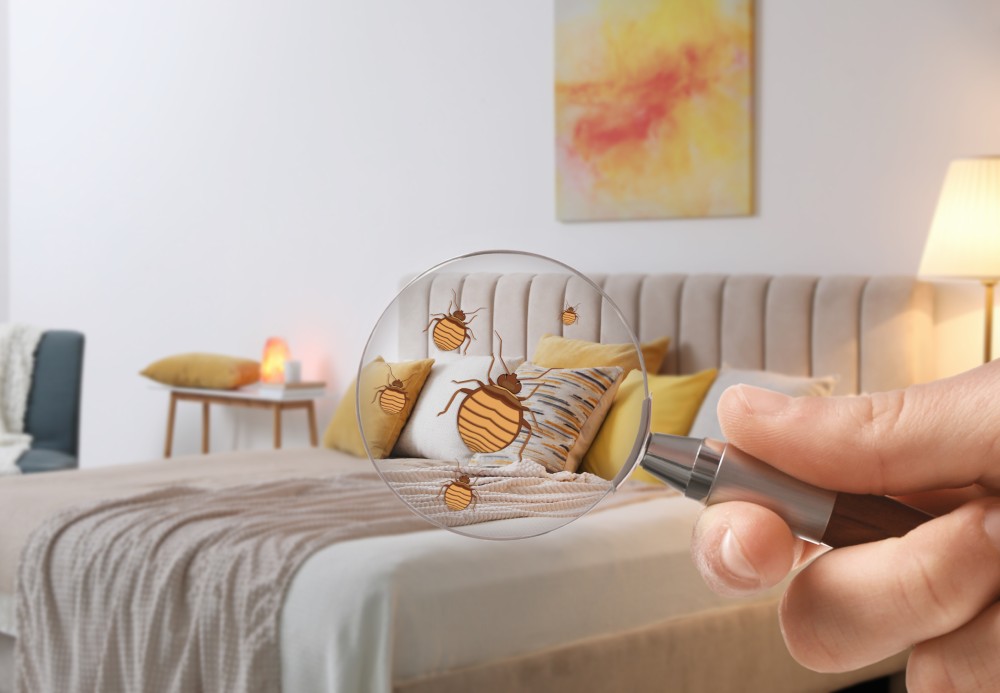



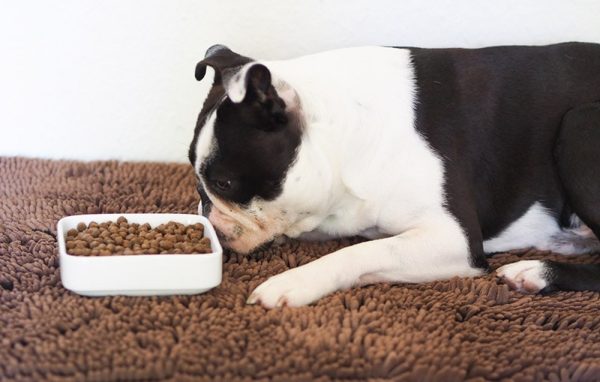
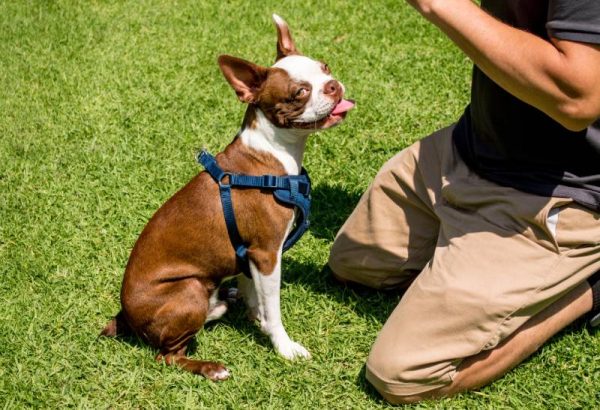




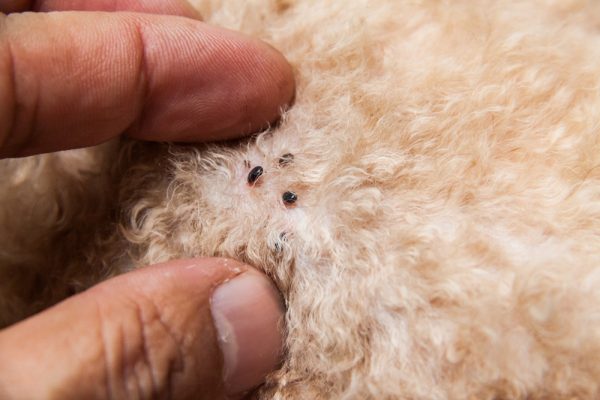










2 Responses
If my dog ate a bed bug or 2A at a hotel will he get sick?